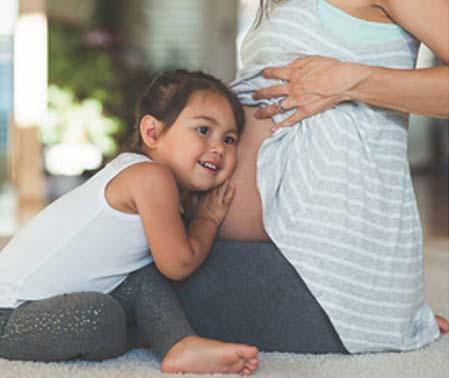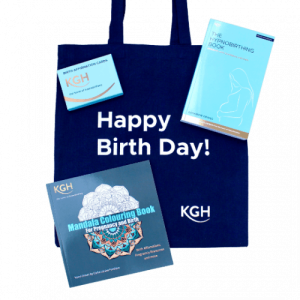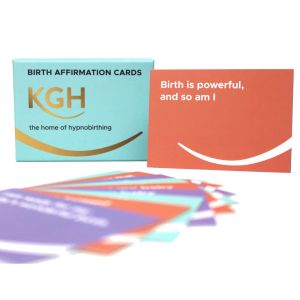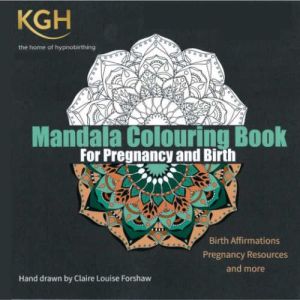The first three months, or first third of pregnancy is known as the ‘first trimester.’ At this time embryogenesis, (which includes conception, cell division and the migration of the cells to form the baby and the placental unit), occurs. When embryogenesis is complete, what looks like a fully formed baby can be seen when a scan is performed. However, there is still a considerable amount of growing to occur.
Conception
 While you are trying to conceive and up to the 12th week of pregnancy it is a good idea to take folates. Folates are a form of iron that will support the growth and development of your baby’s spine during these early weeks.
While you are trying to conceive and up to the 12th week of pregnancy it is a good idea to take folates. Folates are a form of iron that will support the growth and development of your baby’s spine during these early weeks.
If you raise your core, (internal body) temperature during this time it may cause developmental problems. You should avoid very hot baths, saunas, steam rooms and even running a marathon! You should also stay clear of toxins, including non-prescribed and recreational drugs. If you need any medicine make sure you check with your GP or Pharmacist that it is safe to take during pregnancy.
Week one of your pregnancy is deemed to start on the first day of your last menstrual period and ovulation, fertilization and conception will have occurred by the end of week two.
Every month an egg (ovum) comes out of an ovary. This is called ovulation. Typically, women have two ovaries and they ovulate once every other month and fourteen days before the next menstrual period begins. You may even notice a twinge on the side you are ovulating when the egg is released. Once the egg is released it is picked up by the fallopian tube on that side. It travels down the tube until it enters the uterus where it embeds.
The egg will, always be female but the sperm may be male or female. For this reason it is the sperm which defines the sex of the baby. You can expect around five hundred million sperm to be release during lovemaking. Around one hundred will survive to make the journey to the egg, but only one will penetrate the outer wall to join together. Fertilization is when the sperm meets the egg and conception is when the sperm and the egg join together. The sperm that joins with the egg is the one that defines the sex of the baby.
The egg can survive around eight days before it perishes and is shed at the next menstrual period. Female sperm swim less quickly than male sperm, but male sperm do not live as long. We can see that conception can appear to be both random and orchestrated; although the sperm is a big predictor, the day that you ‘make love’ and the age of the egg also play a role in defining the sex of your baby.
Embryogenesis occurs between week two and week ten. Over this time the cells are dividing at a fast rate. They move into two groups. One half forms the baby and the other half forms the placenta. Implantation is the term used to describe what happens when the placental half embeds into the uterine wall. This creates a pathway for blood to be shared between mum and baby. Sometimes when this happens mums will notice a small light bleed. It can be confusing and is often mistaken for a light period. Midwives will describe this blood loss as ‘spotting.’ Implantation will have completed by the end of week three.
Early Development
Typically a mother will notice a missed period around week four and by week five the brain, heart and spinal cord will have begun to develop. The structures of the eyes, ears, arms and leg buds begin to appear in weeks six and seven. The term buds is used to describe the arms and legs as at this time they look a little like paddles. The lungs begin to grow in week eight and by week nine all the organs in the body will have formed.
Once you have missed a period and believe you are pregnant you will need to be referred to your local hospital to access maternity care. You can do this by meeting with your GP. In some areas it is possible to self-refer directly via a midwife or your local antenatal clinic. When the maternity unit of your choice is made aware of your pregnancy, a number of administrative tasks will take place. You will be allocated a consultant and a hospital number (unless you already have one). This is for identification purposes. Some hospitals will use your NHS number. The administrative staff will then forward your paperwork to the community midwives. Current national guidelines state that all women should be booked for maternity care by twelve completed weeks of pregnancy. For this reason you should expect your midwife to make contact with you and make an appointment before this time is up.
You may choose to opt for private midwifery care from an Independent Midwife. Independent Midwives work outside of, but alongside, the NHS. An Independent Midwife will offer you antenatal, birthing and postnatal care up to 28 days. You will receive continuity, flexibility and choice. The Government acknowledges that Independent Midwives offer the Gold Standard in maternity care.
Image of friendly IM
There are a range of scans available to all women via the NHS. It is up to you to decide which ones, if any, you wish to accept. A dating scan is the earliest scan you will be offered and indicates the age of your baby. A Nuchal scan is usually offered between eleven weeks and thirteen weeks plus six days. You will also be expected to have a blood test at the same time. Together the Nuchal Scan and the associated blood test are known as the Combined Test. The Combined Test looks at a number of factors and mathematically works out your risk for having a baby with Downs Syndrome or spinal problems. The Combined Test is not a diagnosis. It is a screening tool that will tell you about risks. Your result will either be high risk or low risk. If you fall into the high risk category you will be offered another test that will give you a likely diagnosis, (more definite answers). Some women who fall into the high risk category will be carrying twins. This is because there are higher levels of certain hormones and they affect the result. All this will be taken into consideration and should be thoroughly discussed with you at the time. If you miss the Combined Test you can have a Quadruple Test between sixteen and eighteen weeks. This is a blood test that looks at four components in your blood. It will also tell you if you are in a high or low risk group for having a baby with Downs Syndrome or spinal problems.
It’s important that you understand what these tests mean for you before you decide whether you want them or not. You can discuss them with your midwife or GP. Parenting can be a roller coaster ride when it comes to making these important life choices. Think them through and ask all the questions you need to before deciding what is best for you and your family. There are no right or wrong decisions as each family and each pregnancy will come with a different set of circumstances.
By eleven weeks your baby’s head will be around half of the total body length. At this time the medical word to describe your growing baby changes from embryo to foetus.
Care Towards the End of the First Trimester
Your growing baby’s fingers and toes will have separated by week twelve and the face becomes well formed by week thirteen. At this time you should already have met with your midwife for the first appointment. This is known as the booking appointment.
At the booking appointment there will be lots to discuss. Your midwife will take all your contact details and those of your next of kin. You would be wise to carefully consider who you wish this to be. You next of kin is the first person to be contacted in an emergency on your behalf. Your midwife will also do some medical checks and check your weight and height to calculate your body mass index. She will give you information about healthy eating and exercise as well as discussing other health promotion issues. By taking good care of yourself you will automatically be taking good care of your baby. You may need to ‘tweak’ your diet to make sure you are both getting all that you need. You can read up on ‘Healthy Eating in Pregnancy’ for more information on this topic.
There will be scans, urine and blood tests that you may, or may not wish to have, and you can discuss them with your midwife at this time. The details of your medical history and the history of any other pregnancies will also be gathered by the midwife. This will help her to assess and discuss the right care pathway for you.
Another important issue that needs discussing is your choice for the place of birth. Many women are now choosing a home birth. Recent research, (the Place of Birth Study) has shown us that home is a safe and legitimate option for most fit healthy women. You may also choose to birth your baby in a low risk birth unit or a stand-alone birth unit. The labour ward is usually reserved for more complicated cases.
Morning sickness affects some women in the first trimester of pregnancy. This is often due to low blood sugars which occur most often in the morning. This is because overnight the body has been starved of food. You may find it helpful to eat a couple of ginger biscuits before getting out of bed. Although it is called morning sickness it can occur at different times throughout the day. You may find it helpful to eat little and often rather than having three big meals with gaps in between. Sometimes the addition of B vitamins to your diet can ease the effects of morning sickness. Foods rich in B vitamins include, bean sprouts, avocado, whole grains, nuts, mushrooms, bananas, oranges, yeast extract, green leafy vegetables, beans and lentils. Morning sickness often goes away by sixteen weeks of pregnancy but can also come back towards the end. If you are finding it hard to keep food and drink down and you think you are losing weight then you need to see your GP or speak to your midwife. In some cases there may be some medication that will help.
During these early weeks enormous changes are occurring. Embryogenesis is the creation of new life; a process that continues for the duration of your pregnancy. It is not surprising then that some women feel fatigued. It’s important to get all the rest you need, eat well and exercise gently. Most women recover from these feelings when embryogenesis has completed. By the beginning of the second trimester you will begin to feel significantly better and, as they say, ‘blooming.’
Gentle exercise like swimming and walking will do you good but you need to avoid anything more robust like the high contact sports of rugby and other team games. It is probably best to avoid cycling and riding. You may want to join an exercise group that is specifically designed for pregnant mums-to-be. Make sure the course facilitator is properly trained to deliver pregnancy related classes. This type of class will give you a chance to meet other mums-to-be and build a supportive parenting network.
This is such a special time in your life. You are growing a whole new life inside your body. Take things easy, look after yourself and enjoy every moment .
Daily Aphorisms
- I am blessed to be bringing new life into the world.
- The universe loves me and supports my transition into motherhood.
- When I eat healthy food I look and feel fabulous.









